Sixteen years ago, US pomp rock Gods Kansas released what many believed would be their musical last will and testament; That album, written in cohort with founding member Kerry Livgren – the man who brought the world songs like Carry on Wayward Son and Dust in the Wind – was called Somewhere to Elsewhere and, though longstanding fans like myself welcomed the album with excitement and joy in our hearts, one or two tracks aside it didn’t really sound like the sort of record a band would want to be last remembered for.
The problems for Kansas at this point seemed to be twofold; Livgren really didn’t want to step back on the US touring treadmill that was essentially keeping the name of the band alive, and his continued absence seemed to plunge the band into a creative stasis where they clearly felt unable to write new music without the input of the master craftsman. Secondly vocalist/keyboardist Steve Walsh, though still a wholehearted performer, and cornerstone of the Kansas sound, was clearly having problems with his voice, as anyone who heard his uncomfortably raspy, shouty efforts on the albums he contributed to by Italian AOR collective Khymera will attest.
And so the drift continued; Summer after summer was filled by appearances on the State Fair circuit until finally in 2014 Walsh bowed out in Sioux City, Iowa, closing a forty-year plus association with the band. Was this the final nail in the coffin?
Apparently not, as less than two months later the band debuted a new singer, Ronnie Platt, and announced plans for a new album, Livgren-free and, apparently, heading back to the classic seventies Kansas sound.
The Prelude Implicit is that album and, my word, it’s a corker. Emboldened by the recruitment of Platt and the addition of keyboard player David Manion and guitarist/co-writer/co-producer Zac Rizvi, the band has released an album of breathtaking vision and stunning execution, creating a quintessential sound without ever really plagiarising themselves and in the process hopefully extending the band’s recording career for a good few years yet.
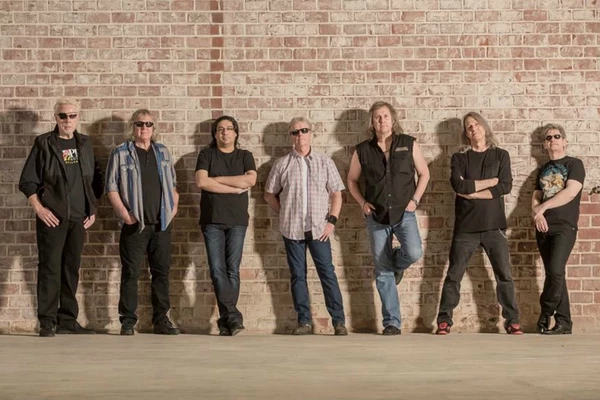
Platt is something of a vocal everyman, his voice pleasantly placed somewhere in between Kansas’s two previous singers, Walsh and John Elefante (who actually turned down the band’s offer to replace Walsh for a second time in 2014 before Platt arrived on the scene). This means the band are able to pitch their sound somewhere around the 1979/80 mark – when Elefante originally joined the band – enabling Kansas to straddle their prog and AOR areas with ease on The Prelude Implicit.
That said, this album is very much one for the prog/pomp fan, sounding overall a bit like Elefante singing material that would have fitted in nicely in the Monolith or Audio Visions sessions. This is an undoubted treat, but strangely the most classically Kansas-sounding track is album closer Section 60, an instrumental driven by the soaring violin work of David Ragsdale; This is the Kansas sound of 1976, the sound that will bring all long term fans of the band to their feet in approbation.
New man Rizvi plays a blinder throughout; the man has a feel for what is intrinsically right in terms of what a Kansas album should sound like, and how the arrangements therein constitute that sound. Opening single With This Heart is the band in microcosm, Platt’s heartfelt vocals melding with Ragsdale’s violin and the meatwall dynamics of Rich Williams’ guitar work to create what is at once a quintessence yet also delightfully new and uplifting. And then there’s Phil Ehart, the baleful keeper of the Kansas flame, keeping the band on course throughout with his always excellent drumming. There are few better sticksmen in the business than Ehart, and his work throughout The Prelude Implicit is exemplary.
Visibility Zero is a dynamic hark back to the time of the Vinyl Confessions album, to a time when the band first fully started to explore the possibility of broadening the appeal of their music via the more melodic vocal approach of Elefante, and here the band replicate that sound in mouthwatering fashion. Ragsdale again proves what an integral part of the team he’s become, again providing the instrumental lead to act as a foil to Platt’s superb vocal.
Unsung Heroes goes the other way, back to the band’s roots in bluesy gospel and rock n’roll, and you could imagine Walsh singing the arse off of this song in his prime. But that was yesterday; and for today Platt handles things very nicely thanks, probably contributing his best all-round performance on the album, superbly backed by the chorus’ swelling Hammond organ supplied by Manion. Next track Rhythm in the Spirit is revelatory; riding in on the heaviest of riffs, hitting a shimmering chorus before returning to the bulldozing main guitar motif. It’s the sort of song you’d think was beyond a band of this vintage, it’s mix of willful complexity and sheer bombast surely the preserve of a younger band. But no. Williams and Rizvi are unstoppable, soloing and riffing like demons throughout, yet still able to drop down a notch to support the superbly crafted melodicism of the chorus. It’s yet more trademark Kansas brilliance, familiar yet very new – are you seeing the pattern form?
Of course, you don’t get a Kansas album without at least one ballad, and here that function is fulfilled by the spine tingling Refugee. Finger-picked acoustics and a spiralling violin figure will of course lead to comparisons with Dust in the Wind, but this track has far more to offer in terms of lyrical content and theatrics. It’s the only song on the album that’s really tips it’s hat to the two albums Kansas recorded for MCA in the nineteen eighties, with the song’s drawn out conclusion especially sounding like something that would have fitted in nicely on 1988’s colossally underrated In the Spirit of Things opus.
Longest track The Voyage of Eight Eighteen is very much what you’d hope a reborn Kansas would sound like, synthesizing all the classic seventies elements of pomp and circumstance with the melodic flair of the eighties; It’s anthemic opening riffs will not fail to get the hairs on the back of the neck standing to attention, it’s epic nature will satisfy every requirement you have of a Kansas track, it’s final denouement will have you wanting to listen to the whole thing over again immediately. In short, it’s a nigh-on perfect piece of Kansas music.
Camouflage is much the same, although it doesn’t quite attain the heights of the previous track, whilst Summer is perhaps the only track that wavers in quality a little. It’s back to that Vinyl Confessions sound again – you get the sense that as a whole the band operates most comfortably in this ‘era’, especially Platt – whilst penultimate track Crowded Isolation is the third of the album’s real jewels alongside …Eight Eighteen and Rhythm in the Spirit. A brooding, snake hipped epic, it takes a little while to insinuate itself, the song building slowly against a backdrop of fractured rhythms and a wall of Hammond before blossoming into another gargantuan chorus. Platt gives another highly convincing performance, Ehart delivers his best drumming on the album, as does Manion on the organ, the result being Nirvana for the committed pomp rock disciple.
The Prelude Implicit is a grand statement, perhaps the grandest Kansas has made in the last thirty five years. It is the sound of a band comfortable with all the facets of it’s past, yet excited about the new possibilities of the future; But above all, it is a triumph.



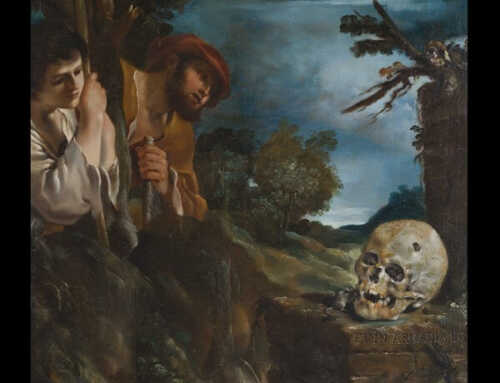
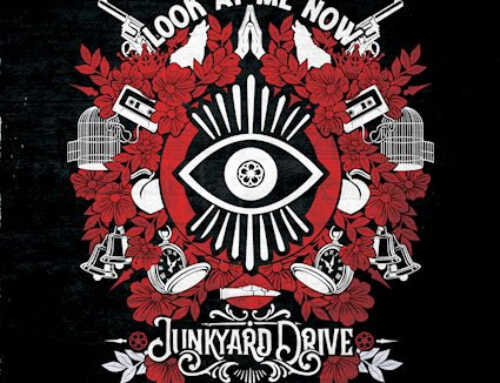

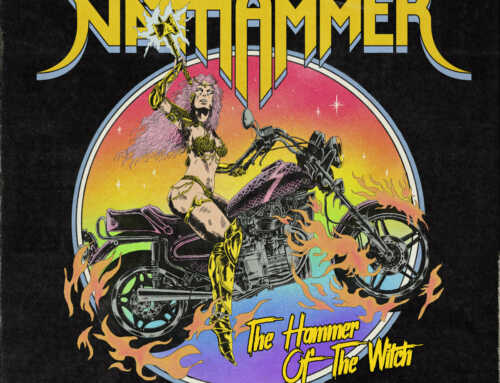
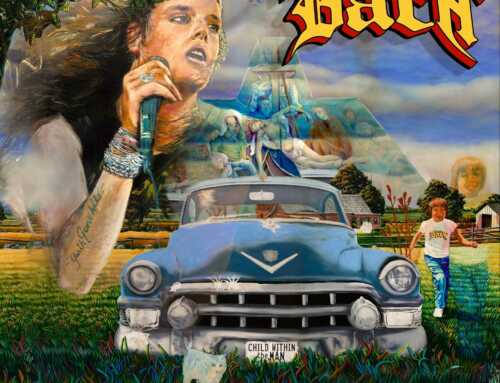
Leave A Comment